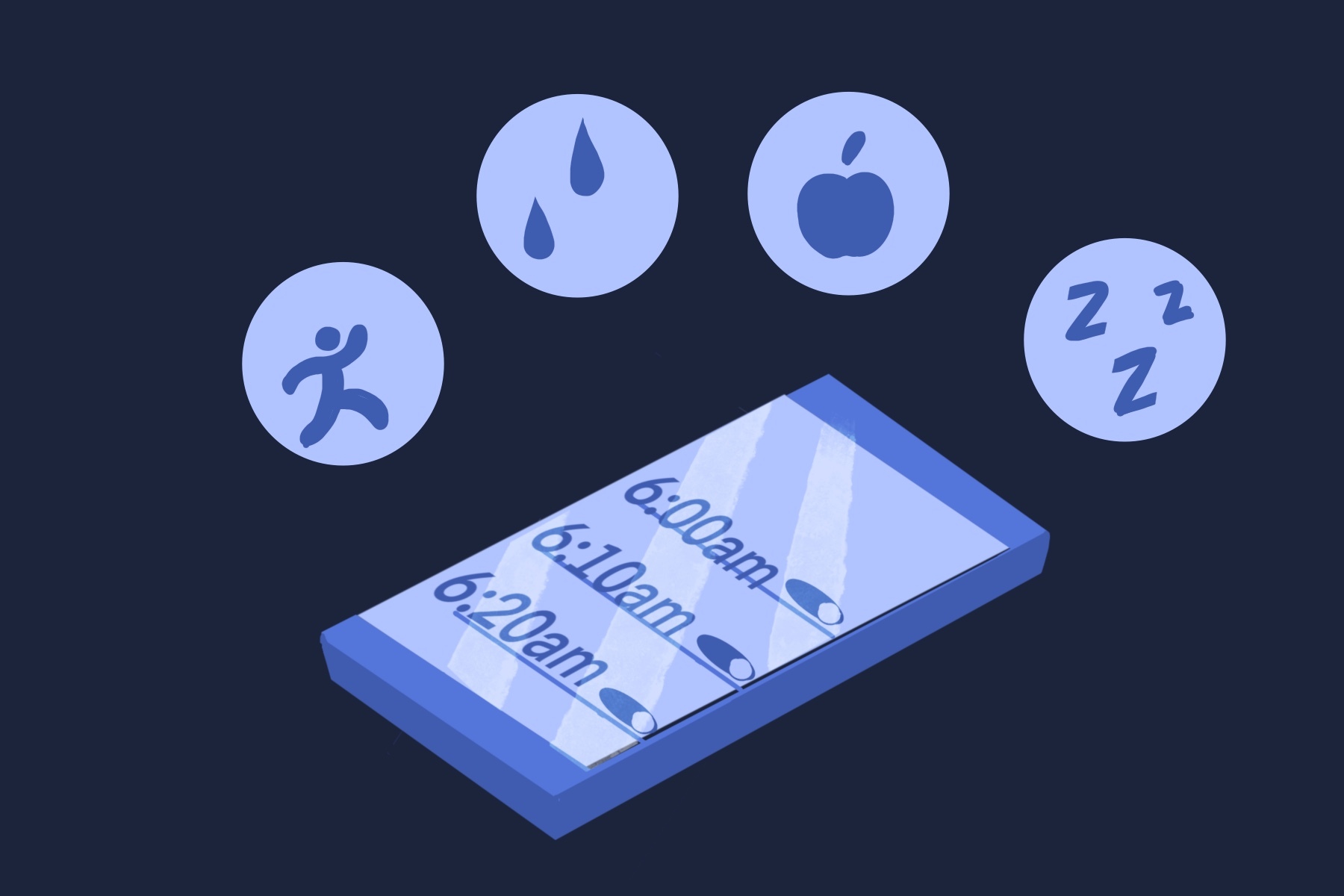Mundane everyday activities can make us jaded to the actions that contribute to our quality of life. But little do most recognize, these actions determine a large part of what happens in our lives — and yes, I mean the most straightforward activities, such as how we wake up in the morning and close the curtains each day. But fear not, since we have complete control over these habits and can choose to change them at any time. It only takes a little bit of intention and self-awareness.
Step 1: Introspect and Select Habits!
Before I get into the specifics of how we can change our undesirable habits, we first must engage in some introspection and see which activities are unhealthy or need improvement. So, take about five minutes or so to reflect on your daily schedule and write down activities you dread and only do to cope with some underlying feeling of unfulfillment. This also extends to any habits you have that only make you feel good while you’re doing them but then cause you to feel poorly after.
Addiction is a common habitual struggle many face, especially considering how difficult it can be to overcome them. For instance, think about your morning coffee that tastes amazing and fills you with energy until you have a blood sugar crash around 1 p.m. Despite the high that comes with that warm and vibrant flavor, you must ask yourself if it is worth it. Or even still, is there a way to indulge in a healthier alternative, like tea? Of course, Starbucks regulars are laughing at the comparison. However, that’s the very thing that prevents humans from growing and changing for the better: being so comfortable in a cycle that you won’t even entertain the idea of straying from it.
Binging Netflix right before bed is also a common bad habit that many of us have. Don’t get me wrong, I enjoy streaming “Downton Abbey” just as much as the next person, but the timing of your habits plays a massive role on how they impact you. The sleep interference comes from the blue light emitted from all of your electronic screens. As seen on sleepfoundations.org, the blue light comes from the sun first and foremost, which suppresses the release of melatonin, a neurotransmitter that induces sleep. However, if we maintain an active concentration of blue light after the sun has set, we are tricking our minds into being awake, thus, disrupting our body’s natural circadian rhythm.
Step 2: Process With Positivity!
So, when you’re discovering the negative consequences of your habits, please remember to have compassion for yourself. After all, the worst thing you can do in an attempt to change for the better is to punish yourself for what you didn’t do or should’ve known. It will only cause a downward spiral of negative emotions, pushing many to jump toward an antidote of instant gratification or any pleasure-releasing activity to cope. Too often, people beat themselves up over past actions, which gets them nowhere. This defeatist attitude is a harmful habit that many of us can benefit from letting go of.
Instead, I encourage you to celebrate that you are increasing your awareness and upgrading yourself because you no longer fear change. Now, note that I am not saying to ignore how the past hurt you, because these strong emotions will help deter you from relapsing. That’s because the primary motivation for change in life is pain itself. Someone that is comfortable in their environment and routine won’t feel the need to change.
For example, touching the stove as a child taught you very quickly to never touch hot surfaces again. Yes, it was introduced with an unhappy emotion, but it literally burned this lesson into your memory to ensure that you won’t intentionally burn yourself again. The key to learning is not getting mad at yourself for touching the stove, because your 3-year-old self had no clue that it would hurt you.
Just as valid, your 20-something self had no clue that some of your friends didn’t have your best interest at heart. You cannot blame yourself for what you did not know. You also can’t let one painful event banish your curiosity for life. But even if you feel like you should’ve known better or overlooked many red flags, that’s okay because you can always change into what you desire. Now, you can pause and think about why you did it and how you can avoid repeating the same undesirable habit. But don’t ridicule yourself as if that will help you avoid the problem in the future. Progress requires confidence and determination, which can only be attained through forgiving yourself and getting back up again.
We Are Supercomputers!
Detaching from anything you are used to is difficult because our bodies are hardwired to like familiarity. Once upon a time, our ancestors needed consistency and familiarity to survive. Not knowing how to procure food or fit into the larger community threatened their sense of security. However, that kind of mindset is no longer necessary for our survival. So, the next time you fear that you will die if you get rejected by your crush or a potential employer, relax and remember that tribalism isn’t necessary.
We also have a superpower known as resilience. Being able to perform our own personal software updates at will allows us to evolve for as long as we live. But before we can update ourselves with new beliefs and habits, we must discard all data that is no longer relevant; after all, it would be difficult to pick anything up if both of our hands are already full. But remember, as the highly advanced machines we are, we need to filter out old habits constantly. This is because of the power of our memory. If we forgot something the moment we wanted to, we’d be flawed beings with a botched memory because of how quickly we act on our emotional impulses.
Practices such as journaling a conversation with yourself can help spill your emotions onto paper and clear your consciousness for new experiences. Both speaking and writing your newly desired habits can help these traits take a firm hold on the subconscious mind; this habit is also known as daily affirmations. You can say them before bed and as soon as you wake up, or even while looking at yourself in the mirror. However you choose to reprogram your mind, know that it can only get better from here. Even if you fall off the wagon, it will always be waiting there for you, whenever you’re ready.

















